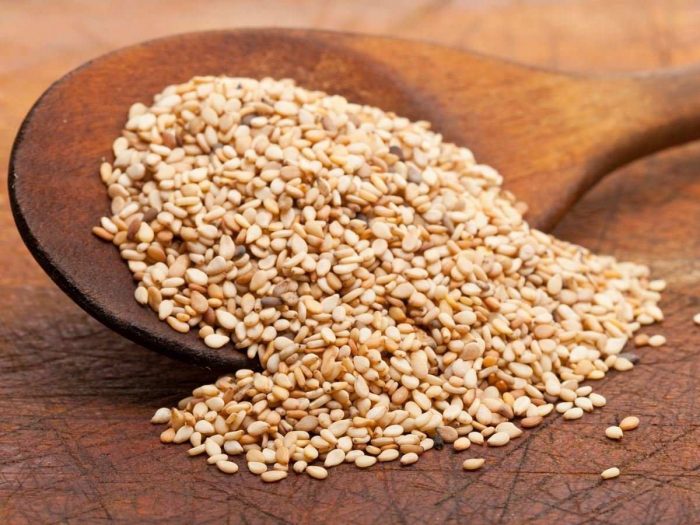We all must have heard about sesame seeds at least once in our lives – they are one of the oldest oilseed crops, belonging to the genus Sesamum, native to Africa and India. These seeds have a number of health benefits and can be made a part of our diet in many different and delicious ways. However, what is also important to know is that there are two varieties of these seeds available in the market, known as the hulled sesame seeds and the unhulled sesame seeds. In this article, we tell you the difference between the two and their uses.
Hulled Sesame Seeds Vs. Unhulled Sesame Seeds
Sesame seeds have an outer cover, also known as the hull or husk. The outer cover or coat can be removed before these seeds are consumed.
Main Difference
When the outer cover of sesame seeds is removed, they are known as hulled sesame seeds. The ones with the cover are the unhulled or natural variety of sesame seeds.
Taste, Color, & Texture
Hulled sesame seeds are white in color and have a milder and nuttier taste, compared to the unhulled variety. The difference in taste between these two comes from the processing that the hulled variety goes through. The hulls of these seeds contain oxalates, which are bitter-tasting compounds (giving the unhulled variety their bitter taste), also present in kale, rhubarb, and a number of other vegetables.

Sprinkle sesame seeds on your salads and sandwiches. Photo Credit: Shutterstock
Uses
You can use sesame seeds for making tahini paste, sprinkling on top of burgers, bread, and baked goods, and as a garnish for salads, stir-fries and more. They are also used to make sesame milk and sesame oil. You can use any of the two variants of these seeds, depending on the kind of bitterness you want in your dish.
You may try adding sesame seeds over the following too.
Nutrition
There is not much of a difference in nutrition between the hulled and unhulled variety of sesame seeds. Both are rich in protein, carbohydrates, fiber, calcium, iron, magnesium, potassium, phosphorus and more. They also make for a good source of energy and help you keep hydrated as per the USDA’s Nutrition Database. Given their interesting nutrition profile, sesame seeds are also good for the heart, digestion, bones, and inflammation. [1]
Risks
Both the hulled and unhulled variety of these seeds are safe for consumption. Just make sure you are not allergic to them.
